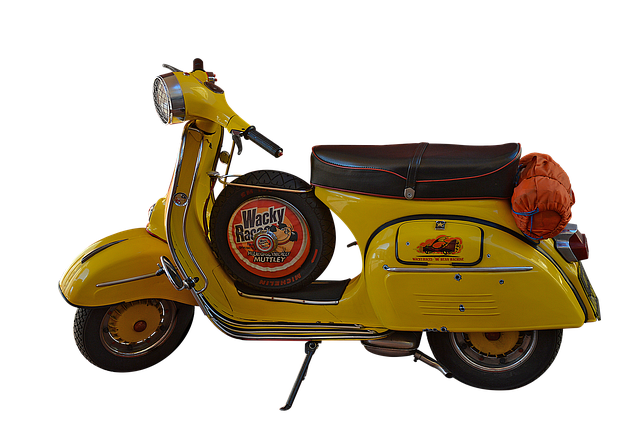When purchasing or selling mopeds for sale, understanding local licensing requirements is crucial. Regulations vary by region but generally involve registration, license plates, identity proof, fees, and safety tests. Mopeds, defined as low-speed vehicles with engines under 50cc, often have more relaxed rules. However, it's essential to check local definitions, power restrictions, age riding requirements, and business licenses (for sellers). Compliance avoids legal issues, fines, and ensures a safe transaction in the mopeds for sale market.
“Unraveling the complexities of moped licensing is essential for anyone looking to enter or navigate the market for these compact vehicles. This comprehensive guide offers a simple breakdown of licensing requirements, ensuring you’re prepared when buying or selling mopeds. From understanding the legal framework to avoiding common pitfalls, we’ll walk you through each step. Whether you’re a prospective dealer or enthusiast, this article equips you with knowledge, emphasizing the importance of staying compliant in the world of moped sales.”
Understanding Licensing for Mopeds: An Overview

When considering moped for sale, understanding licensing requirements is a crucial step in ensuring compliance with local laws. Licensing for mopeds, often simpler than for motorbikes, typically involves registering your vehicle and obtaining a license plate. This process varies across regions but generally includes providing proof of identity, paying fees, and possibly passing a basic safety test.
Mopeds are usually defined as low-speed vehicles, with engines under 50cc, designed for urban commuting. Because of this, regulations tend to be more relaxed compared to larger vehicles. However, it’s essential to check local definitions and power restrictions, as these can affect registration, insurance, and riding age requirements. Understanding these licensing details upfront streamlines the ownership experience, ensuring a smooth ride both literally and legally.
Eligibility Criteria for Buying and Selling Mopeds

When it comes to buying or selling mopeds, understanding the eligibility criteria is essential. In many regions, there are specific licensing requirements and age restrictions for operating mopeds on public roads. Typically, individuals must be a certain minimum age, often 16 years old, to legally purchase and ride a moped. This age limit ensures that drivers have reached a level of maturity and responsibility suitable for handling motorized vehicles.
Additionally, some jurisdictions require a valid driver’s license or a specialized moped license to operate these two-wheeled vehicles. Prospective moped buyers should check local laws to ensure they meet these criteria. For those planning to sell mopeds, it’s crucial to verify that the buyer possesses the necessary documentation and licensing, as this process is often a legal requirement for ensuring safe and compliant transactions regarding mopeds for sale.
Types of Licenses Needed for Moped Sales

When selling mopeds, understanding the necessary licenses is paramount to ensure compliance with local regulations and avoid legal pitfalls. The types of licenses required can vary significantly depending on your location and the scale of your operations. For individuals or small businesses engaged in the retail sale of mopeds for sale, obtaining a business license is typically the first step. This license grants you the legal permission to operate a commercial venture within your jurisdiction.
In addition to a general business license, specific permits may be needed to deal with vehicles like mopeds. Some regions demand a motor vehicle dealer’s license or registration, especially if you’re selling multiple units. These licenses ensure that you comply with safety standards and regulations related to the sale of mopeds for sale. Understanding these requirements is essential, as operating without the right permissions can lead to severe consequences, including fines and legal action.
The Application Process: Step-by-Step Guide

The application process for licensing a moped for sale is straightforward and can be completed in several simple steps. First, gather all necessary documents, including proof of identity, residency, and age (typically 16 years or older). These documents ensure that you meet the legal requirements to operate and sell mopeds within your jurisdiction.
Next, apply for a seller’s license through your local transportation or motor vehicle department. This can often be done online or in person. After submitting your application, wait for approval. Once approved, you’ll receive your official license, allowing you to legally sell mopeds. Ensure that you understand any associated fees and keep accurate records of sales transactions for future reference.
Documenting Your Business: Legal Requirements

When selling mopeds, ensuring proper documentation is in place is a legal requirement and an essential step to avoid any future complications. Before entering the market with your mopeds for sale, it’s crucial to understand that each jurisdiction may have specific guidelines, so staying informed about local laws is paramount. One key aspect is establishing a clear business structure and registering your enterprise. This process involves creating articles of incorporation or organization, which define your business’s legal status.
For moped dealers or sellers, obtaining the necessary licenses and permits is vital. These may include sales tax registration, business licenses, and possibly even specialized vehicle licensing for mopeds. Keeping accurate records of these documents is essential to prove your business legitimacy when selling mopeds. Such documentation ensures transparency and safeguards both your business interests and those of your customers in the vibrant market for mopeds for sale.
Common Mistakes to Avoid During Licensing

When navigating the process of licensing for mopeds for sale, it’s crucial to steer clear of several common pitfalls. One major mistake is overlooking local regulations and failing to understand the specific requirements for your area. Each jurisdiction has its own set of rules regarding moped registration, insurance, and safety standards, so neglecting these can lead to delays or even legal issues. Always check with your local transport authority or relevant department to ensure compliance.
Another frequent error is not thoroughly vetting potential suppliers or sellers. Buying a moped from an untrustworthy source could result in acquiring a stolen vehicle or one with a hidden history. Verify the seller’s legitimacy, inspect the moped for any signs of tampering or damage, and obtain all necessary documents to avoid these pitfalls and ensure a smooth licensing process.
Resources and Support for Moped Dealers

For moped dealers, navigating the licensing landscape can be simplified by leveraging available resources and support. Many regions offer dedicated guidance and assistance to ensure businesses operating within the two-wheeled vehicle sector adhere to relevant regulations. These include comprehensive online portals where dealers can access up-to-date information on licensing requirements, application forms, and necessary documents for selling mopeds.
Dealers can also tap into local industry associations or government agencies charged with consumer protection and vehicle regulation. These entities often provide workshops, webinars, and one-on-one consultations to clarify licensing procedures, especially when dealing with unique aspects of moped sales. Staying informed and connected is key to a smooth process for both dealers and prospective buyers looking to purchase these compact and convenient mopeds for sale.
Staying Up-to-Date with Local Regulations

When purchasing or operating mopeds for sale, it’s crucial to stay informed about local regulations. Licensing requirements and rules vary widely from region to region, so what applies in one area might differ significantly from another. Keeping abreast of these changes ensures you’re meeting all necessary legal obligations, avoiding potential penalties, and promoting safe streets for everyone.
Regularly checking with your local government websites or contacting relevant authorities is an excellent way to stay up-to-date. This proactive approach allows you to understand the specific rules regarding moped registration, licensing, and safety standards. Such knowledge empowers you to make informed decisions when buying or maintaining mopeds, ensuring compliance from the outset.
